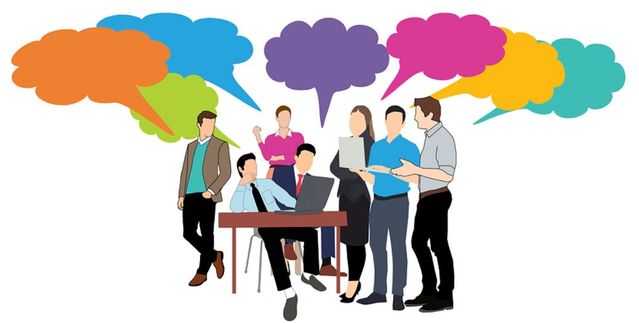Media
Calling Out Sick From Work? Why You May Want to Unplug Too
New survey: Almost half of employees are caught in lies on social media.
Posted November 16, 2017

Make no mistake about it, we are living in a digitally connected world.
In a Pew Research Center survey, 88 percent of teen social media users agreed that people share too much of themselves on social media. Everyone needs to understand the importance of social sharing for your platform—versus oversharing for your ego.
In a new CareerBuilder survey conducted by Harris Poll online, 40 percent of workers have called in sick when they weren't over the past year which is up slightly from 2016 at 35 percent and 38 percent in 2015.
I can't believe they fired me
According to this report, almost half (43 percent) of the employees have been caught lying about being sick by checking out their social media posts and 12 percent have found themselves fired. The number of workers caught virtually being untruthful has increased by almost 10 percent since last year (34 percent in 2016). This is troubling since people should know by now that what goes online is for the world to see, including your coworkers.
The law firm Proskauer Rose found in its 2014 “Social Media in the Workplace” survey that nearly 80 percent of the companies surveyed had a social media policy
in place, up from 60 percent in 2011. Just one inappropriate comment about your workplace, or other topics, can get you fired if you cross your firm’s guidelines.
I can't believe they posted that
Even with social media policies, it doesn’t always stop us from needing to rant. One study found that approximately half of all workers posted pictures, videos, or messages involving their employer. Remember the 25-year-old Yelp/Eat24 employee, who wrote an open letter griping to the company’s wealthy CEO about her low pay? “I can’t afford to buy groceries,” she wrote in her widely read post. “Isn’t that ironic? Your employee for your food delivery app that you spent $300 million to buy can’t afford to buy food.” She ended up getting fired within hours, explaining in a later tweet that she had apparently violated her company’s “terms of conduct.”
It’s not just hiring managers and the HR department assessing your online persona. Your coworkers are equally likely to check you out. A June 2016 Pew Research Center survey found that 17 percent of employees go to social media to learn more about a coworker and another 17 percent to strengthen their connection with a coworker. But frequently, that impulse can backfire: 29 percent of young workers discovered something online that lowered their opinion of that colleague. Did you really want your coworkers to find out what you’re into?
Little white lies
CareerBuilder's survey shared that just over a quarter (28 percent) of workers who had paid time off (PTO) programs still felt the need to "make up" an excuse for taking a day off.
Rosemary Haefner, CHRO of CareerBuilder said, “Your reputation is very important and you should always be upfront and honest with your boss about the time you need off. Outlandish excuses for calling off work can raise red flags and can lead to trust issues, so avoid them at all costs.”
Even comments unrelated to work can cause blowback for your job. Remember the slogan, “What happens in Vegas stays in Vegas”? Many people still seem to be operating under the misconception that what they do online stays online. But as some have learned, that is no longer true.
Employers today aren’t drawing a distinction between their employees’ online personas and their real identities. If you have something nasty to say, in our country, you are free to express yourself. But that doesn’t protect you from holding on to your job since employers see their workers as an extension of their own brand.
Digital detox
Play it safe when it comes to your employment. If you're out sick for the day, don't forget to check-out of social media too.
Being a cyber-savvy employee starts with digital wisdom:
- Never air your workplace woes online.
- Bad day at work: Find a friend for a session of whine and wine offline.
- Be mindful of your virtual friends. Never assume you're among people with your best interests.
- Manage your privacy settings frequently.
- Pause before you post. Never hit send in haste on any digital device.


